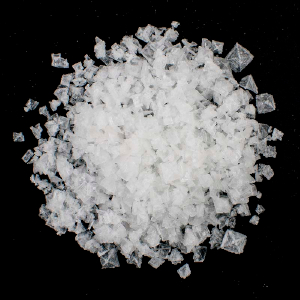This post – because it focuses on celebrity chef Salt Bae’s technique for seasoning steak – may seem out of place in the Fab Food Blog. But The basic principles discussed can be applied to any food to enhance flavour…
 Salt Bae: Flaunting his trademark flamboyant salting style…
Salt Bae: Flaunting his trademark flamboyant salting style…
I’ve been trying to resist giving in to my curiosity about this Salt Bae guy. He’s now under investigation by FIFA, the world soccer governing body, for crashing a World Cup post-party and doing the unthinkable: touching the Cup trophy. But that’s another story for another place.
Why is he a celebrity anyway?
Salt Bae – AKA chef-restaurateur Nusret Gökçe, master of the new Nusr-Et steakhouse in New York City – is a guy other celebrities want to seen with, these days.
He’s been all the rage over the past couple of years for both his viral salting technique for seasoning meat and his quirky personality. Basically, he advocates using what many health authorities might call a lot of salt, to bring out the optimum flavour in foods – especially his trademark dish, beef steak.
He says to use plenty of salt and to master the flamboyant chef’s technique of dropping your salt from a bare finger pinch onto your meat using a swirling motion, to achieve best, most even distribution. In fact, that one move has been central to his going viral and is considered the foundation stone of his celebrity status.
But what about all that salt?
Other top chefs seem to agree his technique and his love of salt are ‘right on point’. For instance…
Thomas Keller owner and head chef of the French Laundry restaurant in Napa Valley, California, has preached proper seasoning with salt as a tenant to great cooking. In The French Laundry Cookbook, published in 1999, Keller wrote that, “the ability to salt food properly is the single most important skill in cooking… Without it, the flavor of meats and vegetables and fruits is a little flat, dead, fade as they say in France — insipid. Salt opens up flavors, makes them sparkle.”
As all serious cooks know, salt is an almost magical substance that piques the taste buds to register optimum flavour. It’s especially useful to help leverage the umami factor present in all foods to some extent, but in rich, red meats in particular.
Keller has long contended that folks have not been getting their full money’s worth out of expensive meat cuts since salt use was officially discouraged back in the 1990s. Keller says some cooks went too far in reducing their salt use to the point that it stopped doing what it was supposed to do. And we’ve all gotten used to bland food.
Let common sense prevail
The World Health Organization still remains adamant that over salting is bad for cardiac health. Nobody’s arguing with them. But acknowledged top chefs such as Samin Nosrat say common sense should prevail.
In her 2017 best-seller Salt, Fat, Acid, Heat she writes: “Unless you’ve been specifically told by your doctor to limit your salt consumption, you can relax about your sodium intake,” she writes. “Anything you cook for yourself at home is more nutritious, and lower in sodium, than processed, prepared, or restaurant food. […] Does this mean you should simply use more salt? No. It means use salt better. Add it in the right amount, at the right time, in the right form.”
What about the ‘right kind’ of salt
Keller and Nosrat agree with Gökçe that the only way to go is Maldon sea salt flakes. Maldon is one of the most expensive and exclusive salts available. Most home cooks would never spend the (C)$27 – $63 per kg Maldon sells for online, depending on source and packaging. Not when regular table salt goes for just (C)$1.49 – $1.99 per kg at just about every supermarket.
Anyway… In the end, the kind of salt you use is entirely up to you. Concentrate on your salting technique!
As for Salt Bae… Eater.com has the complete lowdown.
~ Maggie J.

